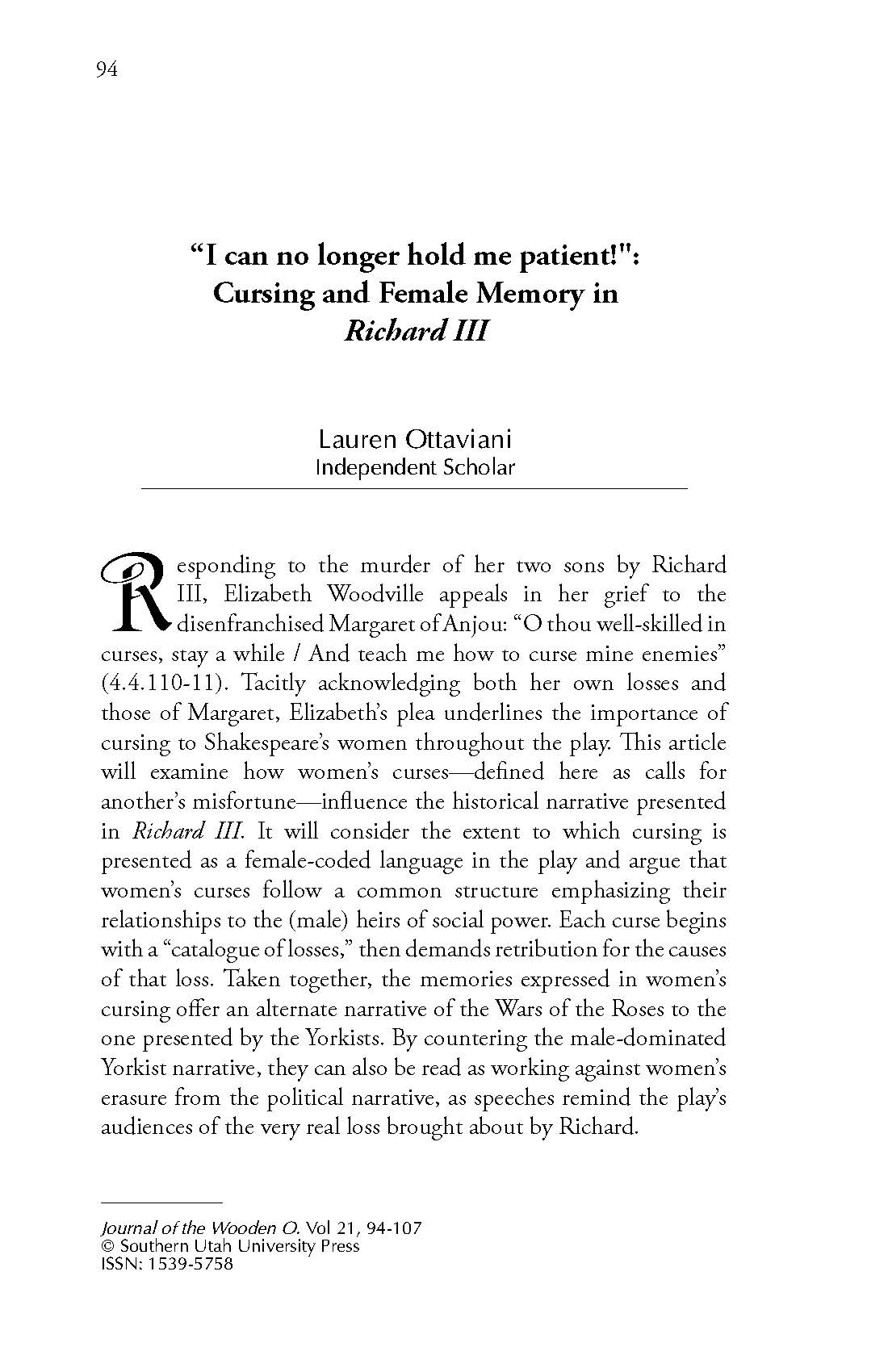"I can no longer hold me patient!" Cursing and Female Memory in Richard III
Main Article Content
Abstract
Responding to the murder of her two sons by Richard III, Elizabeth Woodville appeals in her grief to the disenfranchised Margaret of Anjou: “O thou well-skilled in curses, stay a while / And teach me how to curse mine enemies” (4.4.110-11). Tacitly acknowledging both her own losses and those of Margaret, Elizabeth’s plea underlines the importance of cursing to Shakespeare’s women throughout the play. This article will examine how women’s curses—defined here as calls for another’s misfortune—influence the historical narrative presented in Richard III. It will consider the extent to which cursing is presented as a female-coded language in the play and argue that women’s curses follow a common structure emphasizing their relationships to the (male) heirs of social power. Each curse begins with a “catalogue of losses,” then demands retribution for the causes of that loss. Taken together, the memories expressed in women’s cursing offer an alternate narrative of the Wars of the Roses to the one presented by the Yorkists. By countering the male-dominated Yorkist narrative, they can also be read as working against women’s erasure from the political narrative, as speeches remind the play’s audiences of the very real loss brought about by Richard.
